The data management system is not synchronized.
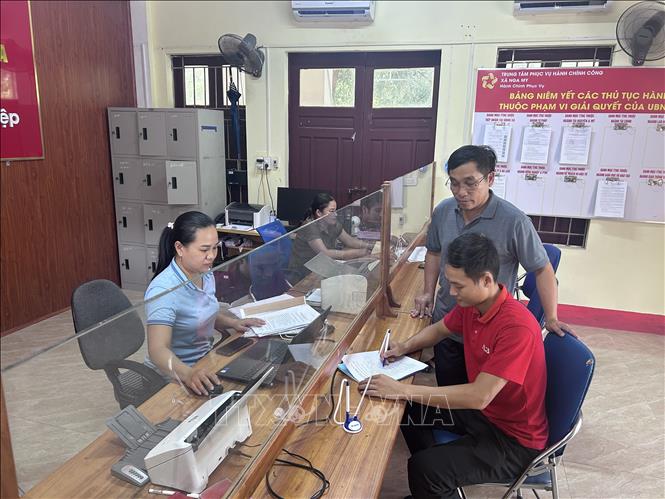
On the morning of September 17, at the Nga My Commune Public Administration Service Center, a large number of people came to carry out administrative procedures; many of them were waiting for their turn to be supported, receive and resolve their civil status records.
Despite having to deal with many things, Ms. Le Thi Thanh Hai (a specialist at Nga My Commune Public Administration Service Center) still enthusiastically guided people to declare information on the electronic software. For missing information, she asked people to supplement or verify it. However, Ms. Hai shared that the process of converting civil status data and processing large attachments often encountered technical errors. “Nga My is a remote commune, with difficult roads, and people are not familiar with information technology applications, so using electronic software is very difficult. In the past three days, I have had more than 10 records related to birth registration and divorce suspended on the system, forcing people to wait a few days to complete the procedures. This is very difficult for people in mountainous communes,” Ms. Hai said.
In most communes and wards of Nghe An province, from the beginning of July 2025 until now, the number of records has increased; especially procedures related to birth registration, death registration, death certificate extracts, marriage, and confirmation of marital status. However, the current problem is accessing data and managing old civil status records that were left behind before the administrative units merged. The civil status data system managed by the Ministry of Justice is often faulty and not synchronized, leading to difficulties for localities in handling administrative procedures in the field of civil status.
Mr. Lo Kham Kha, Chairman of the People's Committee of Nga My Commune, admitted that in reality, the commune's civil status work is facing difficulties due to insufficient staff and lack of experience. The new civil status system has not synchronized all data, so some steps still have to be done manually; the connection between the National Public Service Portal and the civil status system still has errors and is not synchronized.
According to Ms. Le Thi Huong, Deputy Director of Thien Nhan Commune Public Administration Service Center, the civil status data sent to local management only ensures 80%; 20% of civil status data is still incomplete. Therefore, provincial agencies and departments coordinate to direct and support localities in configuring electronic declarations to sign civil status documents on the software system; at the same time, review to ensure accuracy and convenience.
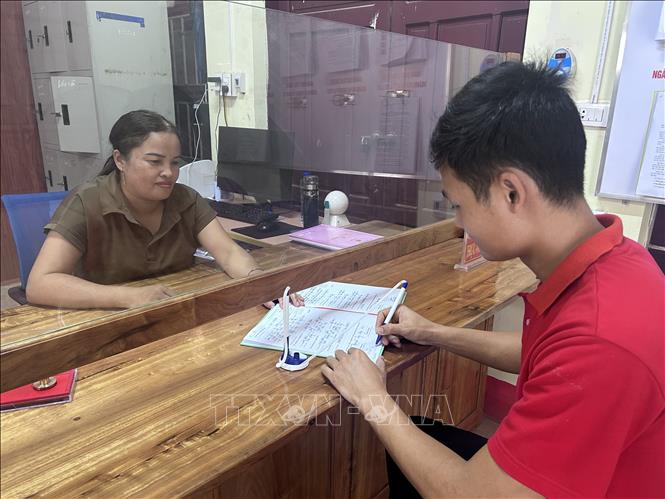
The electronic civil status software system of the Ministry of Justice, which is linked with the Ministry of Public Security, has many times had connection errors and interrupted data synchronization with the provincial administrative procedure information system. Therefore, civil status judicial officials when operating on this system to look up information and resolve administrative procedures for people are often delayed.
Mr. Nguyen The Quan (Truong Vinh ward) shared: “The judicial officers gave enthusiastic instructions, the process was clear, and the fees were publicly listed. However, when I was about to complete the declaration of birth information for my child, the system suddenly froze. Although I sympathized, having to wait for a long time also affected people's work.”
Investment in synchronous information technology infrastructure
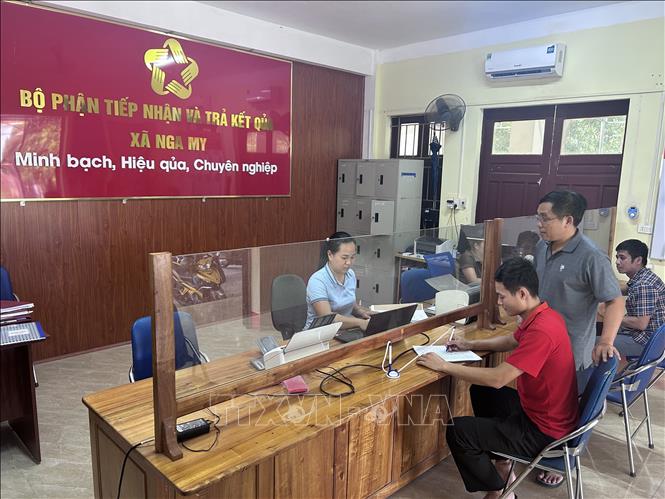
Mr. Dang Hoai Nam, Deputy Director of Van An Commune Public Administration Service Center, suggested that relevant levels and sectors urgently review and fix errors in the interconnected civil status database software so that the civil status service system at the commune level can operate stably and handle all civil status procedures quickly and conveniently. The Ministry of Justice will soon issue specific guidelines on standards for judicial officers at the commune level according to the new government model. This is an important basis for recruiting, arranging and training a team of judicial officers with sufficient capacity to meet the increasingly high requirements in administrative management.
According to Mr. Nguyen Van Thong, Vice Chairman of Nghi Loc Commune People's Committee, the agencies that build the interoperable software continue to upgrade and improve the software; at the same time, fully arrange equipment for the team of civil servants to carry out interoperable public service procedures, especially scanners and computers to perform their tasks well. The units support the creation of accounts on the National Public Service Portal, guide people to submit interoperable documents to reduce the workload for Justice - Civil Status officials, and ensure that the documents submitted by people are complete and valid from the beginning.
From the above practices, many localities in Nghe An recommended that the Ministry of Justice have solutions to supplement and develop the team of Justice - Civil status officials, ensuring sufficient grassroots resources; perfecting civil status software, synchronously connecting with the National Population Database; enhancing specialized training, especially on procedures with foreign elements, expanding to commune-level officials.
With 80% of the current administrative procedures being handled at the commune level, Nghe An province needs to prioritize arranging enough positions for commune judicial officers; investing in information technology infrastructure; purchasing enough equipment, vehicles, and machinery to meet the requirements of performing professional tasks; applying artificial intelligence to automate repetitive procedures, reducing the workload for staff. The Department of Science and Technology promotes direct and online training to help localities grasp the process, contributing to improving the effectiveness of administrative reform and digital transformation.
Faced with the above situation, the People's Committee of Nghe An province is currently reviewing and resolving difficulties for communes and wards. The province continues to invest in a synchronous information technology system, especially for public administrative centers in communes and wards to ensure smooth implementation of tasks.
Source: https://baotintuc.vn/thoi-su/som-dong-bo-va-nang-cap-he-thong-ket-noi-du-lieu-ho-tich-lien-thong-20250917122458000.htm




![[Photo] Science and Technology Trade Union honors exemplary workers and excellent union officials](https://vphoto.vietnam.vn/thumb/1200x675/vietnam/resource/IMAGE/2025/9/17/842ff35bce69449290ec23b75727934e)



![[Photo] General Secretary To Lam chairs a working session with the Standing Committee of the Government Party Committee](https://vphoto.vietnam.vn/thumb/1200x675/vietnam/resource/IMAGE/2025/9/17/cf3d855fdc974fa9a45e80d380b0eb7c)













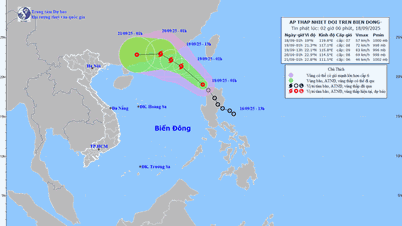








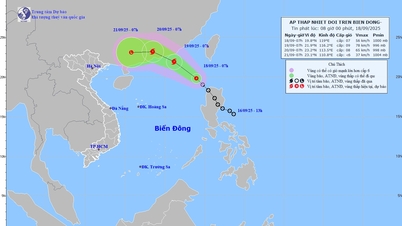
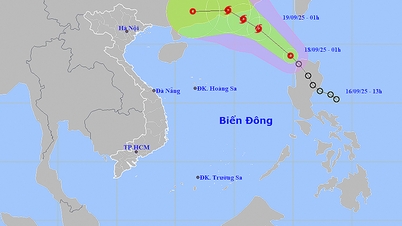











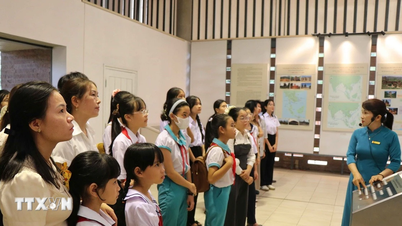











































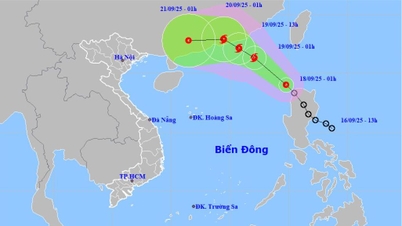













Comment (0)